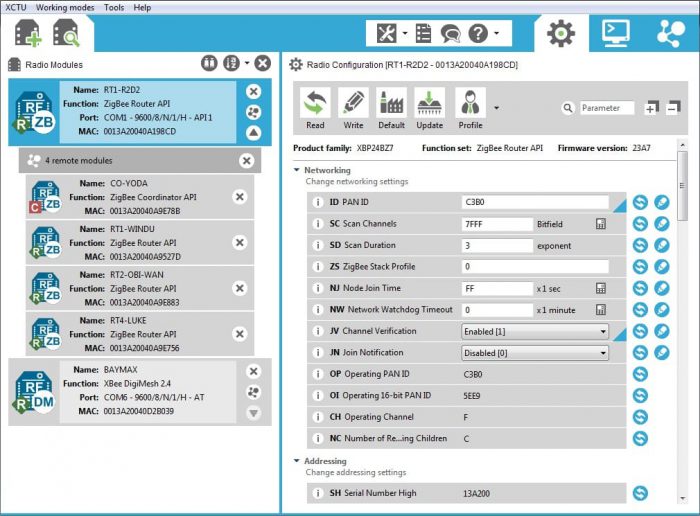
Every Digi XBee® comes with a huge, free software toolbox called XCTU, for Windows, Mac or Linux. Although the name stands for XBee Configuration & Test Utility, configuration and testing are just the beginning. You can use XCTU to update your firmware, customize your XBees, manage entire wireless networks, write code, automate processes and much more. We will look at each of these features in detail, but first here's an overview of the incredible tools offered by Digi's XCTU app. By the way, you can download the latest version of XCTU at any time, and find additional details in the XCTU User Guide.
 1. Configuration Made Easy
1. Configuration Made Easy
Everyone knows that Digi XBees are a breeze to set up, but they also offer powerful configuration options. XCTU provides all the assistance beginners need (and that experts want too) with contextual help for every option on every XBee. Calculators are also available to assist with inputs. Confused by Join Verification? Simple click the

info icon to learn more. Need to determine the bitfield for channel scanning? Select the desired channels with the

inline calculator and the rest is done for you. XCTU puts you fully in charge of your XBees and makes it easy to learn more.

 2. Working Wirelessly
2. Working Wirelessly
XCTU connects with your entire Digi XBee network over the air. A single XBee connected via USB provides secure access to configure, manage, map, update and test networked radios wirelessly. Using XCTU over the air is effortless. Simply click the network icon for your local radio and it will scan for all the XBees on your network, adding them to the XCTU interface in a list or graphical map. Hundreds of Digi XBee modules are now at your fingertips. Even when they're behind a locked door or way at the top of a utility pole, you're securely in control.
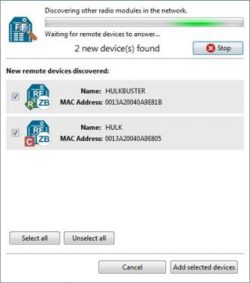
You can view your entire wireless IoT network laid out in a single map, including the strength of all the connections. XCTU's network mapping function does all of that and more, for free. The tool's maps display the full Digi XBee network live in real time. Each node's role is indicated and multiple pathways between radio nodes are all shown, with their respective signal strengths. Every Digi XBee can be reconfigured right from the map, making it easy to experiment and tune your network. There's a variety of layout and filtering tools to help focus on what interests you most. Network maps can be exported as images and as data tables, for use in spreadsheets, reports and more. With XCTU's mapping tools, you'll never be lost again.
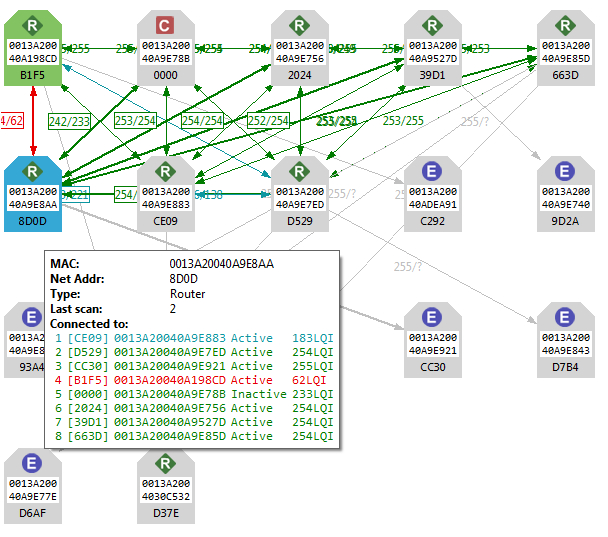
How much data can your Digi XBees send? XCTU's Throughput tool allows you to measure the communications rate between any two modules. Simply connect one radio module to XCTU, then test your bandwidth to and from any other XBee radio on the same network. You can run a single test to check realtime throughput, or map bandwidth over time by running continuously to record bandwidth changes over time. The throughput tool is great for "what if" scenarios, quantifying performance in the lab, on-site network surveys and more.
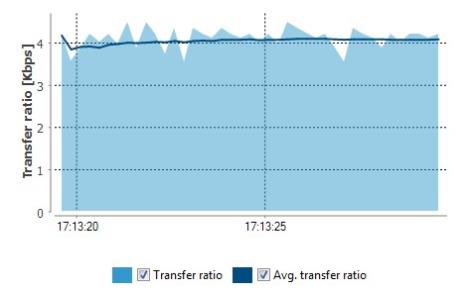
Range is the greatest distance over which two radios can effectively communicate. While range is always important, in many IoT applications it's essential to predict the quality of long-distance links before installation. For example in oil and gas monitoring applications, a radio link may have to travel several kilometers from on-site equipment to a central monitoring station. It's best to know if your chosen solution is likely to work before heading into the wilderness to deploy it. XCTU provides automated and graphical tools for complete loopback range testing, so that entire systems including antennas, cabling and environmental factors can be included in your predictions. Now your Digi XBees can really go the distance.
XCTU lets you see the invisible. Its spectrum analyzer tests and measures energy levels (noise) across various radio channels. The tool reports the energy level of each channel in real time, keeping track with graphs and statistics to help you select the best configuration for your network. Avoiding channels with high interference makes your network more reliable, prevents data loss and can extend battery life. Spectrum analysis can be a powerful troubleshooting tool, helping to determine and locate sources of unwanted radio noise.

XCTU features a new MicroPython terminal to manage edge computing on the new Digi XBee3 modules. These new radios can process data locally, reducing transmissions to save bandwidth and extend battery life. Using MicroPython, an easy-to-learn open source scripting and programming language, you can rapidly prototype intelligent behaviors at the edges of your network. Cryptic sensor readings can be transformed into useful data, excess transmissions can be intelligently filtered out, and complex procedures carried out locally whenever needed. To learn more, follow
Digi's series on MicroPython examples for XBee.
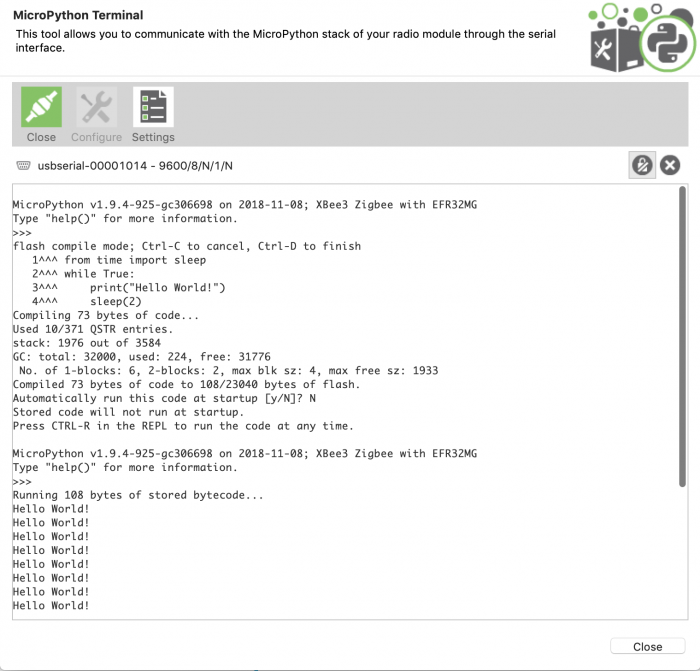
XBees often communicate with host devices using structured API data frames that function like electronic envelopes. They make communications very reliable, but they're designed for machines to read, not humans. XCTU bridges this gap with encoding and decoding tools that make it easy for developers to understand what's being sent and received. Instead of long strings of hexadecimals you'll see the sender's address, delivery info, data type and data payload itself in human-readable form. XCTU's frame tools remove a tedious technical task, saving time and returning developer focus where it belongs—creating great solutions.
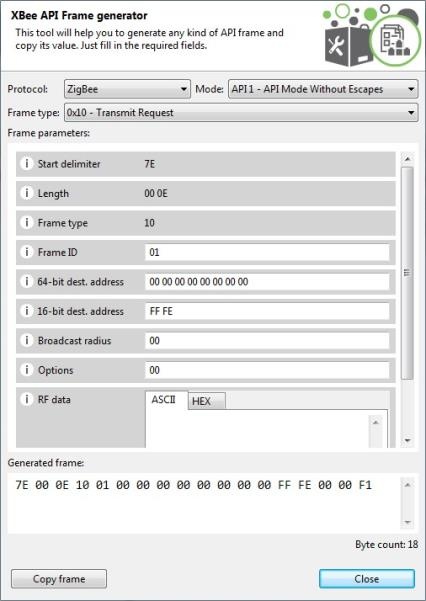
XCTU can directly update any Digi XBee's firmware, so that you always have the latest features. It can also wirelessly update firmware over the air for remote modules. Simply add a remote module to XCTU's device list and proceed normally for OTA upgrades. Digi's new XBee3 modules can even change protocols from Zigbee to 802.15.4 to DigiMesh simply by loading new firmware. XCTU will notify you when updates are available, so you're always in charge for functionality, features and compliance.
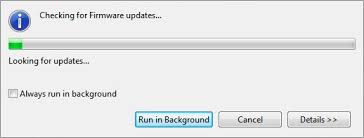
 10. Firmware Explorer
10. Firmware Explorer
There are many different Digi XBee modules, each with several different firmware versions. Want to explore them all? XCTU's Firmware explorer tool allows you to navigate through the entire firmware library to review available versions and their settings without needing a specific radio module attached to your computer. You can change firmware profiles and save them for later use, or load and edit existing ones with full contextual help and calculator support. It's like having every Digi XBee radio module right at your fingertips.
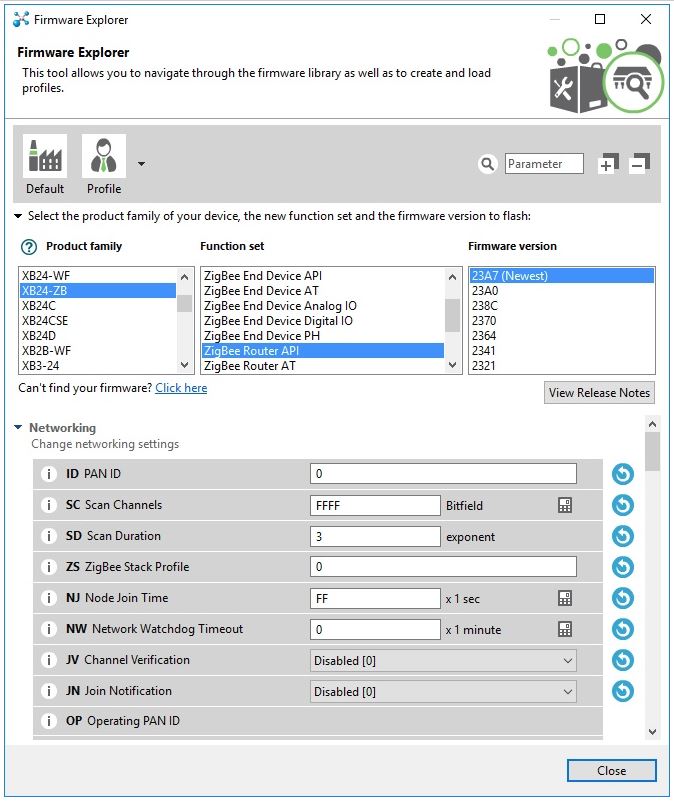
Managing configurations, API frames and keeping track of testing sessions would be a lot of work without XCTU's clever automation. For example, if you have created a configuration that you particularly like, you can save it as a file, then load onto as many other modules as you need to. Want to store a series of API frames for later use? XCTU can do that too. Interactive console sessions can be saved and loaded as needed too, further enhancing your productivity. XCTU's command-line interface helps developers list local ports to find XBee modules, update their firmware and load them with configuration profiles. Advanced users will appreciate all the help that XCTU automation brings to working with Digi XBees in quantity.
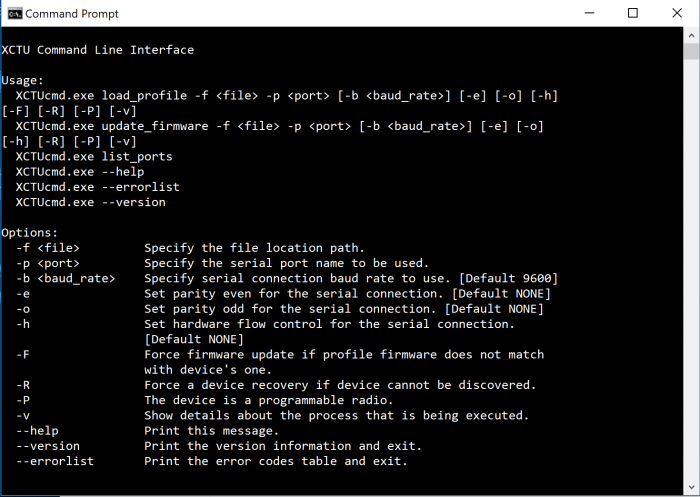
 12. XBee Recovery
12. XBee Recovery
Worried your radio module has given up the ghost? XCTU can bring it back to life. Perhaps you set your XBee for extended low-power sleep, an unusual baud rate, or some other change that makes it temporarily unresponsive. Even if the problem is corrupted firmware, XCTU's XBee Recovery tool can force an update to bring your XBee back to life, good as new.
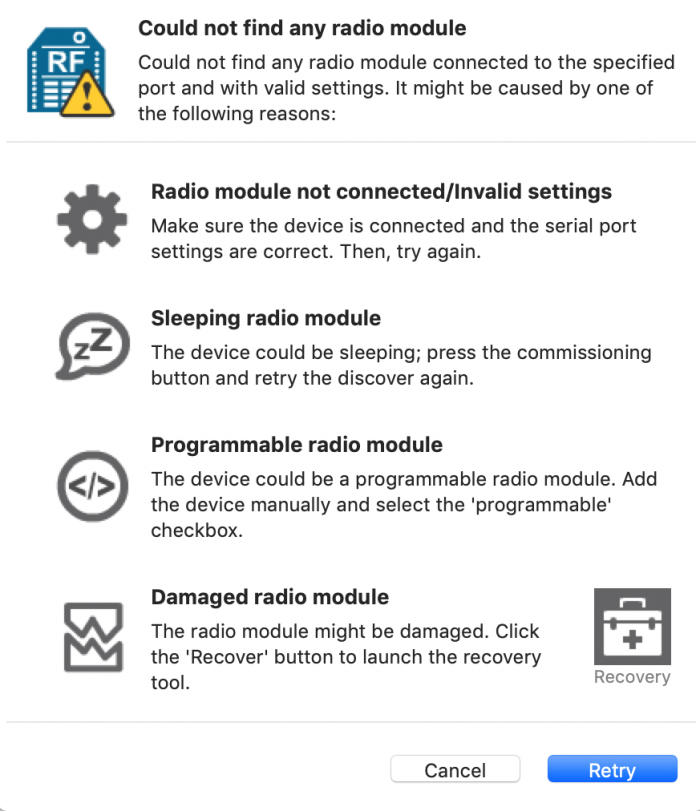
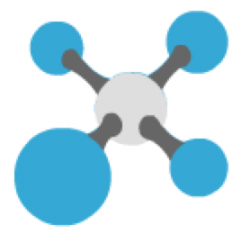 XCTU - The Free XBee Toolbox
XCTU - The Free XBee Toolbox
XCTU is the best toolbox for working with Digi XBees. We've taken a high level look at some of the powerful features including configuration, wireless remotes, frame tools, range tests, throughput analysis, network mapping, channel choice, edge computing, firmware management, automation and recovery tools. Look for details about these features in upcoming articles. XCTU is an invaluable part of the XBee ecosystem. Download it today and start supercharging your Digi XBees.